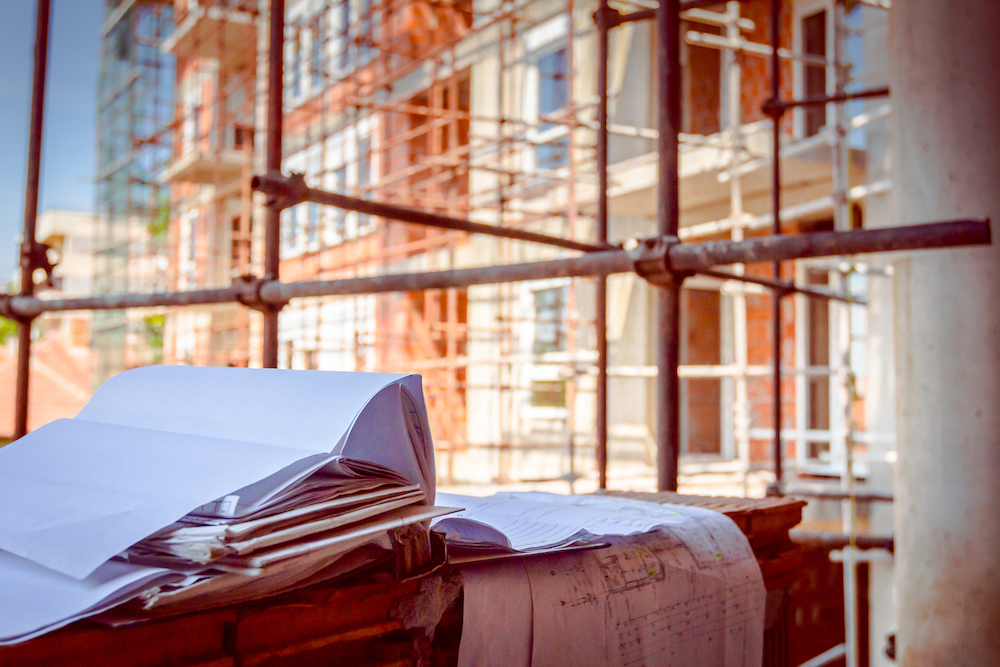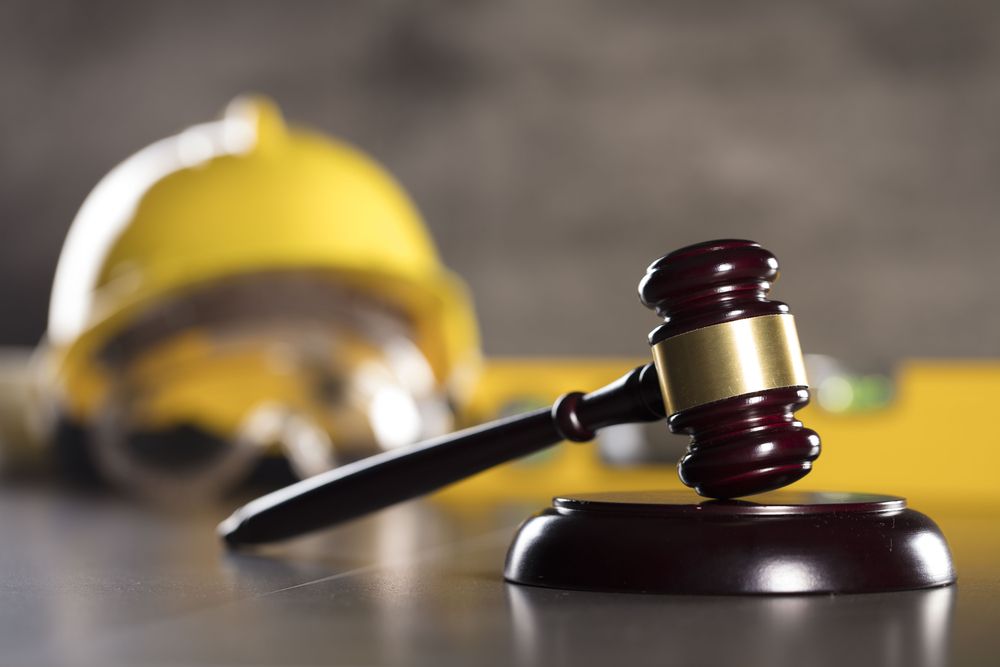Many times, you might have heard that there are construction laws that protect both the contractor and you. Well, to understand this concept more, I tried to study a bit of construction law, so here I am to share some of my understanding with you all and which company to contact when you need expert witness services. Let us begin with the important subject which is: what is an expert witness service?
Well, a construction expert has extensive knowledge and expertise of the construction industry. This includes all aspects of construction accidents and construction injury. Their testimony helps to inform the trier of fact on issues related to construction law such as building delays, codes and compliance, construction costs, and construction defects. The expert witness (EW) is an expert who uses their knowledge, training, and experience in a specific area to help assist courts and other bodies to understand issues in legal cases so that they reach a sound and just decision.

It is also understood that expert witnesses are typically required in situations where an evaluation of the issues requires technical or scientific knowledge that only an expert in that field is likely to have, such as in cases relating to; loss of earnings, insurance claims, severe injuries, degree of sanity, environmental issues, intellectual property and so on.
Expert witnesses may have a variety of roles, including:
- Acting as an expert advisor where advice is provided but the expert’s opinion is not put before the court.
- Acting as a shadow expert where the advisor works ‘behind the scenes’ in a court claim.
- Acting as an expert witness proper or party-appointed expert when the expert is contracted by one party with the aim of providing an opinion to the court.
- Acting as a single joint expert where the expert is instructed by all parties involved.
- Acting as a lead expert when a complex claim requires multiple experts.
- Acting as an assessor, introduced by the Civil Procedure Rules, and appointed by the court as an expert.
The opinions provided by the expert witnesses are described as ‘expert evidence’ and will often include factual evidence, explanation of any technical terms or topics, and opinions based on the facts of the case.
Qualities of an expert witness
An expert witness must be independent and must not be swayed by the party paying their fee. Their role is governed by the Civil Procedure Rules.
They should have:
- A detailed knowledge and experience of the subject matter.
- Good analytical reasoning capabilities.
- Good communication skills.
- Capability of adapting to new evidence.
- The ability to think clearly during cross-examinations.
- A confident manner, especially during court appearances.
- Good understanding of the variety of dispute resolution procedures.
Guidance
Guidance has been produced for both expert witnesses and individuals who instruct experts in the Civil Justice Council Publication Protocol for the Instruction of Experts to give Evidence in Civil Claims, published in 2005 and amended in 2009.

Construction
The construction industry involves long-term transactions with a high degree of uncertainty and complexity, and it is impossible to resolve every detail and foresee every contingency at the outset. As a result, there are frequent disputes, claims, court proceedings and alternative dispute resolution proceedings. This means that those involved in the construction industry may require the services of expert witnesses, or where they have particular expertise themselves, may offer services as an expert witness.
When and why is an expert used?
The role of the expert is to assist the parties in negotiating a settlement, or if the matter proceeds to a tribunal or court, guide the decision-maker towards a reasonable determination.
A residential building dispute does not typically concern the interpretation of a contractual term, which, in a court or tribunal, would be a matter for lawyers to argue.
Rather, a residential building dispute typically concerns claims of incomplete and/or defective construction work the nature of which is highly technical and industry specific. The subject matter of the dispute may be a single dwelling or a residential complex.
A layperson is not qualified to provide evidence of a technical nature which, in court or tribunal proceedings, could be considered an opinion or hearsay. Similarly, a lawyer is not qualified to assess the costs of rectification of a building.
In such matters evidence should be given by a person with specialized knowledge in the subject matter that is based on his or her training, study, or experience. One example of an expert is a quantity surveyor.
Retaining an expert witness
The selection of an expert witness is typically made by the lawyer representing a party to the dispute, who will identify a professional with the necessary expertise required for the particular case and the ability to provide written, and oral evidence, if required.
Written instructions should be provided to the expert which will include an overview of the matter, the issues in dispute, the matters to be addressed, and additional information that will assist in compiling the report, such as building contracts, plans and specifications, and invoices for building materials.
Most unresolved domestic building disputes are heard in a tribunal with specific rules and codes of conduct regarding the use of an expert witness and the required format for expert reports. This is generally to ensure consistency and uniformity. A copy of the relevant expert evidence guidelines and reporting requirements from the tribunal should always be attached to the instructions given to the expert.
It may also be necessary to engage an additional expert with specialist knowledge, such as a structural engineer, to provide a supplementary report for specific issues like a retaining wall claimed to be defective.
A quantity surveyor may be engaged to assess the cost of rectification works for more complex matters. For relatively simple matters, retaining an expert may not be necessary, as obtaining quotes from building professionals and tradespersons may be sufficient.
The expert report
An expert will draw upon his or her construction knowledge to provide a qualified opinion in response to the issues raised in the instructions. A report will typically include:
- the expert’s formal qualifications, experience, and field of expertise in which the evidence is being provided.
- a summary of the issues upon which the expert is required to report.
- any facts or assumptions upon which the expert has relied (i.e. the letter of instruction).
- the identification (and categorization) of incomplete, non-compliant and/or defective building work.
- an opinion as to why the building work is incomplete, non-compliant and/or defective, qualified with reference to relevant standards, construction codes and tolerances, and the building contract, plans and specifications.
- any examinations, investigations or tests used to form the opinion.
- an assessment of the cause of a defect.
- recommendations for the rectification of incomplete, non-compliant and/or defective building work including reasons for the recommendation.
- suggested methods for rectifying the incomplete, non-compliant and/or defective building work including any reasonable alternative remedies.
- the estimated cost of the recommended rectification work.
The duty of impartiality
Tribunal and court rules, practice notes and directions require that an expert witness be impartial and not an advocate for a party to a proceeding. He or she has an overriding duty to assist a tribunal or court on the matter relevant to the expert’s expertise.
Independence is paramount and any hint of bias towards the instructing party by the expert can be detrimental to that party’s case and may initiate a request by the opposing side for the tribunal to disregard that expert’s evidence.
The expert’s reputation and credibility in such circumstances will also be at stake.
Conclusion
An expert witness may be retained to provide an impartial qualified opinion to assist in determining a matter in dispute.
Choosing an expert with the requisite qualifications, knowledge, and experience to provide an objective opinion is essential for many building disputes. When retaining an expert, it is also important to bear in mind that the expert is not an advocate for the instructing party.
If you or someone you know wants more information or needs help or advice, then get in touch with Kane Construction Management Inc in Florida.


I like that you pointed out how expert witnesses are experts that uses their knowledge, training, and experience in a certain area to help courts to understand problems in legal cases so they’d reach a sound and just conclusion. I was watching a recording of a court proceeding the other day and I noticed they used an expert witness, which got me a bit curious about it. From what I’ve seen, it seems there are firms that offers expert witness services nowadays, which could assist in the resolution of cases.